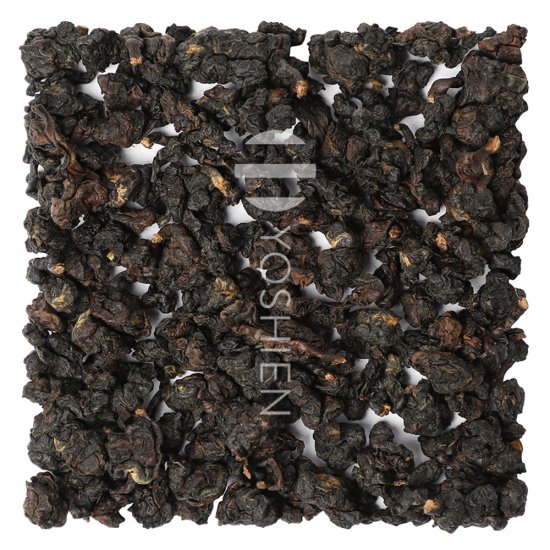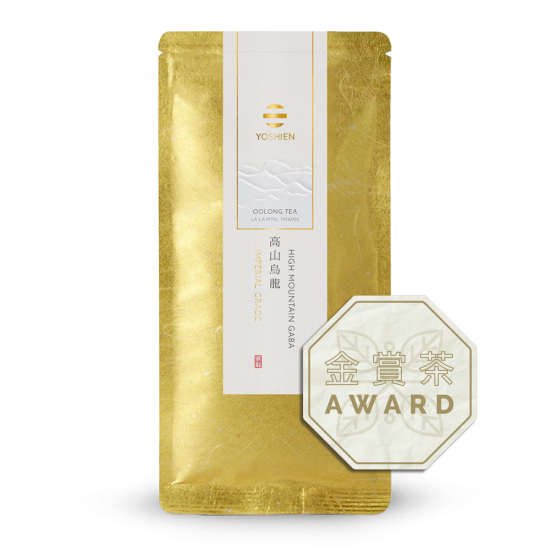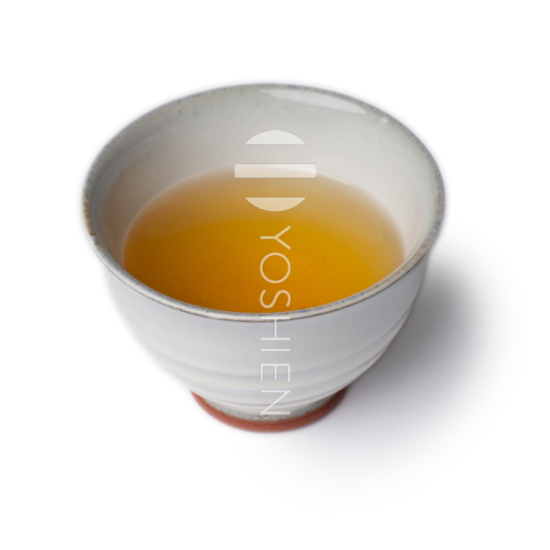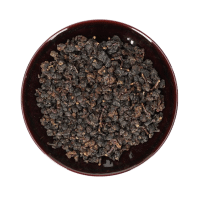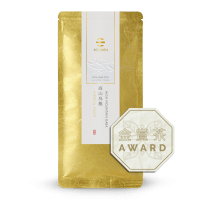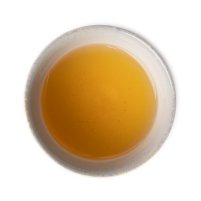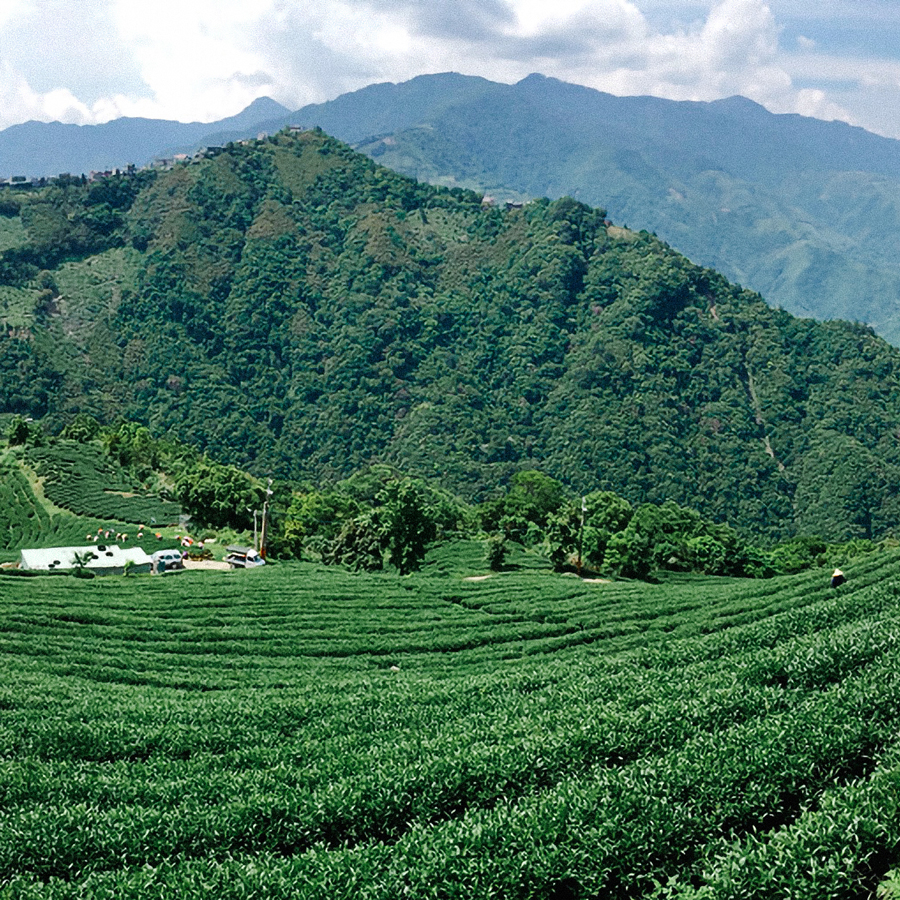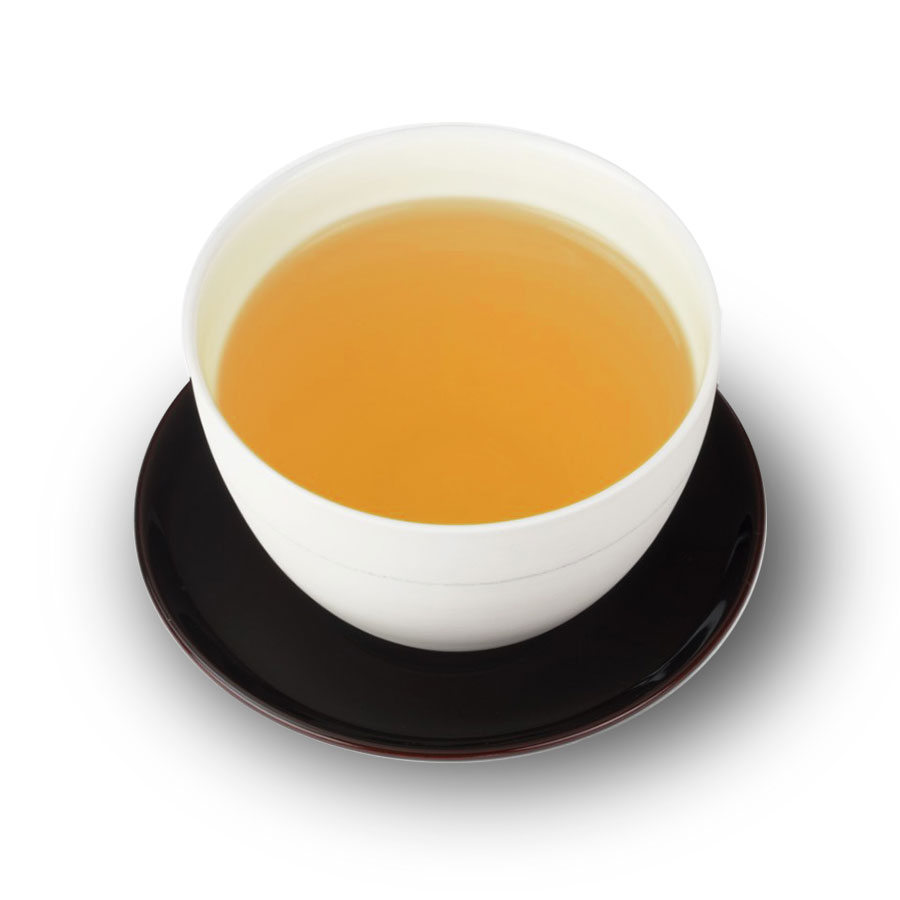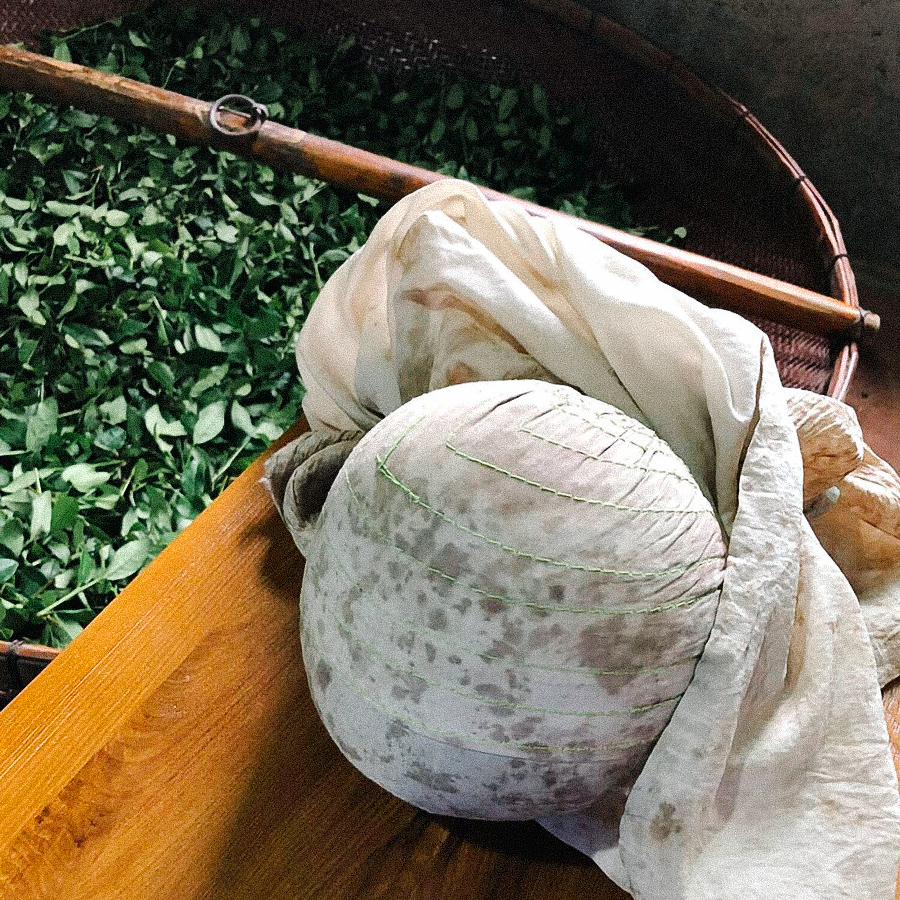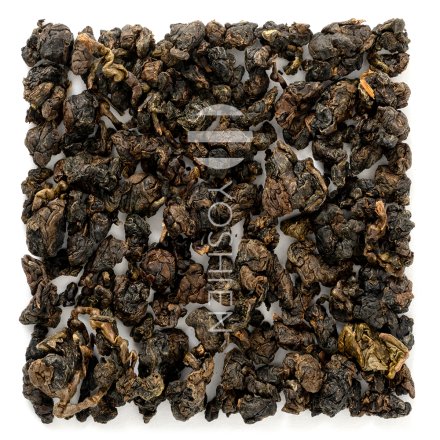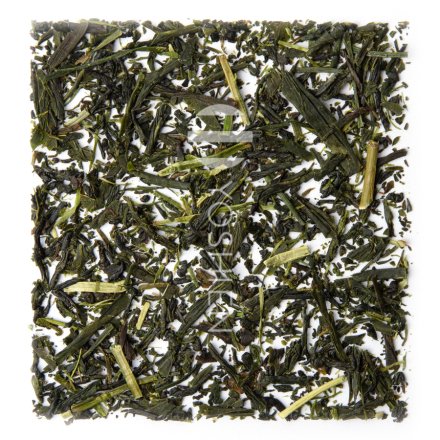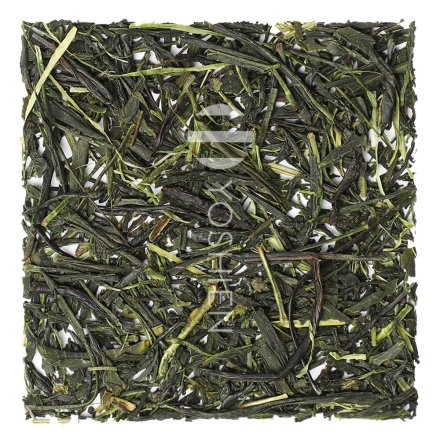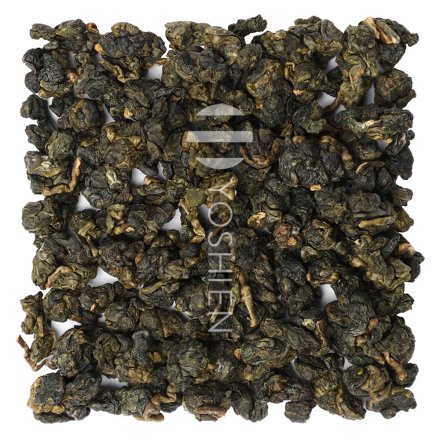This top High Mountain oolong tea is grown in a pristine natural environment at an elevation of 1,400m on the steep slopes of La La Mountain in Taiwan. La La Mountain is known as one of the best terroirs for High Mountain oolong in Taiwan and internationally. The mountain is located at the border between Fuxing District in Taoyuan and Wulai District in Taipei.
The landscape surrounding the tea fields is dominated by internationally recognised old-growth forests with trees that are 500-3,000 years old. Large areas of La La Mountain have been under environmental protection since 1986. The area of cultivation is within the range of the monsoon season and therefore receives both copious rain and sunlight annually. The average temperature is 20°C.
Despite the subtropical climate, wide temperature differences between day and night ensure a bracing climate that is optimal for tea cultivation. The secluded location featuring low population density as well as few agricultural businesses in the area guarantee above average air and soil quality. The tea farmer cultivates his High Mountain oolong teas according to strict organic and sustainable standards and is certified organic in Taiwan. The tea is grown in rich humus soil that is free from chemical substances. The remarkable cultivation conditions of this tea yield an impressively fine and aromatic oolong.
| 1. |
Approximately 1.5 hours of withering with sunlight under glass for the reduction of moisture in the first, light oxidation phase. The leaves are turned over 1-3 times to slow the oxidation process. |
| 2. |
Approximately 7-9 hours of indoor withering: the leaves are brought in from the sunlight and allowed to wither indoors. At first, they are laid out broadly and then increasingly brought together in a pile. To improve the drying and fermentation process, the leaves are twice lightly and twice more forcefully thrown about. Small tears at the edges of the leaves allow liquid in the cells to flow out. Enzymes (such as phenoloxidase) as well as other compounds including polyphenols that remain in the intact cells come together and react with oxygen. This process of oxidation initiates fermentation. |
| 3. |
Approximately 8-15 minutes: via "big wave stirring" the leaf cells are further broken apart. Intense movement, enabled partially by machine and partially by hand, encourages further oxidation. |
| 4. |
Approximately 3-4 hours: The tea leaves are stacked in piles up to 5cm high to retain warmth and to further fermentation. |
| 5. |
Approximately 10-12 hours for the second fermentation (vacuum fermentation) as well as the production of GABA in the leaves: the leaves are placed in a stainless steel drum and stored with nitrogen. |
| 6. |
Approximately 8 minutes in the oven at 78°C to stop fermentation and oxidation |
| 7. |
Approximately 2 minutes: the leaves are rolled in a ball machine that further breaks open the leaves. The liquid that drains out coats the leaves, producing a special aroma. |
| 8. |
Ball cloth rolling: the leaves are pressed, rolled, formed into pearls, and dried in a cloth sack that is clamped down with a rotating lower plate. |
| 9. |
Drying: the leaves are dried in an oven at 80°C to a moisture level of 3%. The drying and ball cloth rolling stages are repeated over a 10 hour period. |
| 10. |
The leaves are not separately roasted at this stage, but in the last phase of drying the oven temperature is raised to 90°C for a light roasted note. |
Via anaerobic storage in nitrogen, the amino acids glutamine and asparagine in the leaves are converted into GABA. As a result, this oolong has approximately 50 times as much GABA as generic green teas. The tea is thereafter finished according to special production, fermentation and drying standards. Unlike other GABA teas, this GABA oolong is only treated with nitrogen once in order to retain a pleasant but not overpowering buttery taste.
Single Origin
This tea is exclusively sourced from the above mentioned tea farm at La La Mountain.
Sourced directly from the tea farmer.



